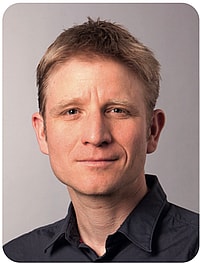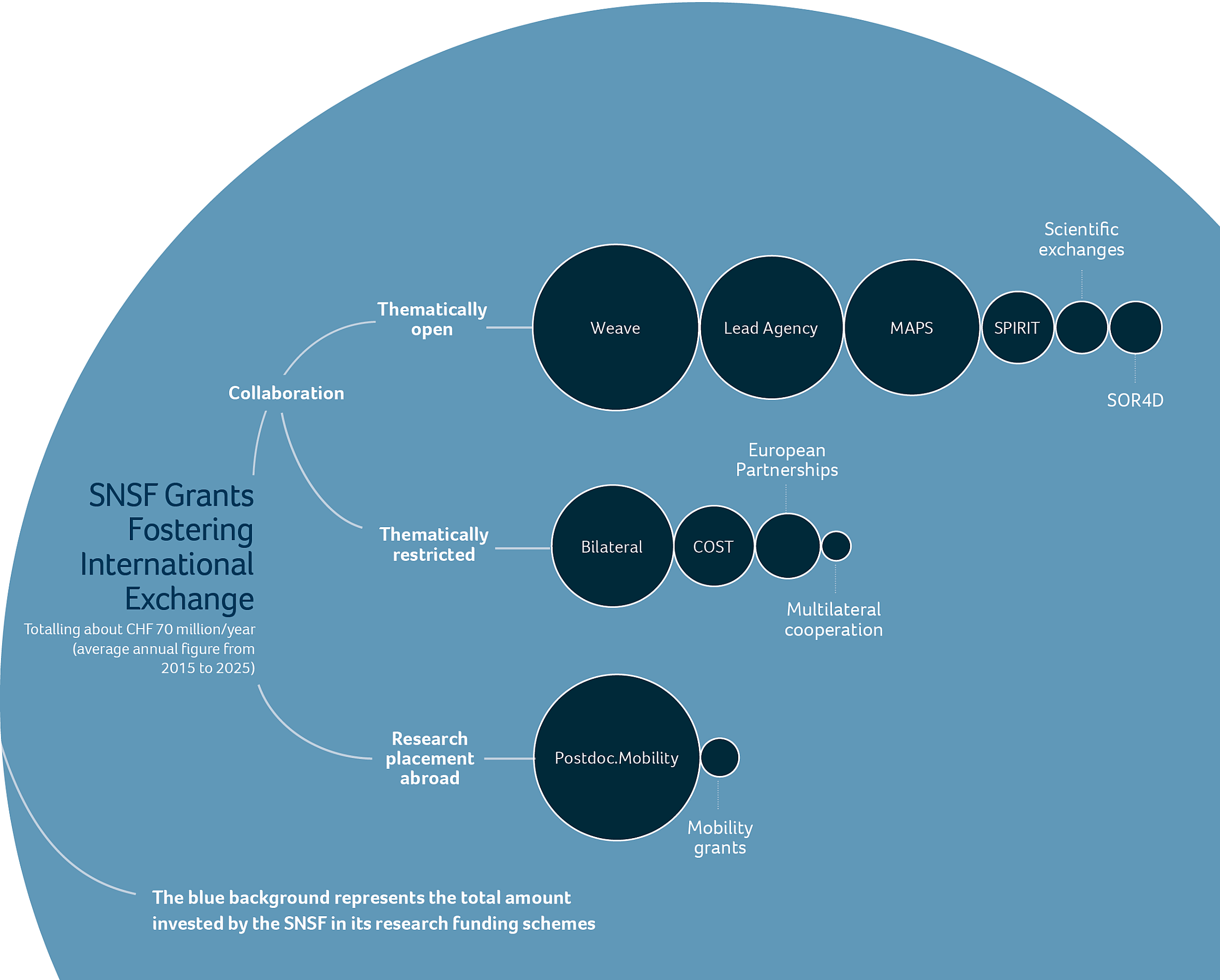- Get directions
- Leave a review
- Claim listing
- Bookmark
- Share
- Report
- prev
- next
- Monday, May 5, 2025 @ 11:00 am
International scientific exchange ensures that the world’s best can compete and collaborate with the most advanced methods and technology in their field. The Swiss National Science Foundation (SNSF) values global collaboration and offers researchers a range of opportunities. Laure Ognois, Head of the International Cooperations Department at SNSF, discusses key questions on the benefits of collaboration and how to overcome potential hurdles.

Florian Fisch
Swiss National Science Foundation | Science editor

Laure Ognois
Laure Ognois started her career with a PhD in modern history and subsequently obtained a Masters of public administration in science and innovation management. She has worked in research and innovation cooperation in France, Germany and Switzerland.
Why should a Swiss organization like the SNSF encourage international cooperation at all?
A key value of science is openness, and research only functions if it is based on cooperation. It relies on researchers working and competing at a global level, and the evaluation of research according to internationally recognized standards. In addition, researchers need a network to develop their career paths. Knowledge and knowhow stem from the exchange of results. The same is true for innovation. But there is one restriction: intellectual property makes international exchange more complicated.
What is the influence of the current geopolitical uncertainty?
Two key values are coming into conflict: openness and security. There is currently a shift in western research policy towards knowledge security. Policy makers use the phrase “open if possible, restricted when necessary”. Last year the Swiss parliament discussed positions towards countries like China, Russia, and Iran - but then there is also the Swiss neutrality.
Does this mean, that Swiss research is less open than previously?
The SNSF has started a project on knowledge security and research ethics. In addition, the federal council has set up two working groups which included governmental departments such as justice, defense, intelligence services and economy. We will develop a tool to make applicants aware of potential risks when cooperating internationally. The goal is to foster global cooperation while ensuring the integrity and the security of research and researchers.
Where do the biggest difficulties lie?
I can give you two examples: China and Turkey. China has new legislation on data protection that is challenging for Swiss-based researchers. They need to be aware that Chinese authorities could access, use and modify data without the applicants’ consent and for any purpose. Furthermore, data leaving China may undergo security clearance by Chinese authorities. We have therefore decided to postpone our plan for bilateral collaboration with China, but we cannot and do not want to stop cooperation with China forever. We are trying to develop solutions hand in hand with our partners, with the Chinese and Swiss governments.
How about Turkey?
Switzerland is part of the Weave program and Turkey would like to join. A country must fulfil a set of criteria to participate; academic freedom is one the most prominent one among them. But currently academic freedom is not fully guaranteed in Turkey. On the other hand, if we exclude researchers from Turkey, they will not have the opportunity to change anything in their system. It is getting more and more difficult to separate science and politics.
Where do innovation and industrial partners come into these SNSF programs?
There are different schemes: European and international, multilateral and bilateral. The European Partnerships do more applied research and more mission-oriented research than the European Research Council. We have also recently launched a program with the UK National Institute for Health and Care Research to support clinical trials. Our joint program with Innosuisse, BRIDGE, is not yet internationalized. As I explained earlier, this is tricky because of intellectual property laws that are different in different countries. What if a collaboration between Switzerland and the US results in a product? Who owns it? What if the conditions for business are better in another country? Switzerland of course also hopes for a return on its investment.
Thematically open international collaboration
- Weave allows researchers from different European countries to receive money for a joint research project from different funding agencies, with one of them being the lead funder.
- The Lead Agency program follows the same principle as Weave for a selection of other countries and funding agencies.
- MAPS is a specific program for cooperation between Bulgaria, Hungary, Croatia, Romania and Poland.
- SPIRIT allows cooperation specifically with countries in the global south, with a focus on training researchers and equal opportunities.
- Scientific exchanges are grants to organize an event in Switzerland and invite people from abroad for short stays.
- SOR4D is a joint program with the Swiss Agency for Development and Cooperation fosters collaboration with the global south and east to advance the sustainable development goals.
Thematically restricted international collaboration
- Bilateral and multilateral collaborations usually set up several research projects around a common theme that is important to the countries involved.
- COST initiatives allow researchers to get extra money for networking across borders on specific topics.
- European Partnerships is a set of programs around a set of themes within Europe.
Helping Swiss scientists to work abroad
- Postdoc.mobility grants allow young researchers to do a postdoc in another country.
- Mobility grants allow people within other SNSF projects to join a research group abroad.
Helping foreign scientists to work in Switzerland
Some SNSF funding schemes are open to foreign researchers coming to work in Switzerland.
- Ambizione is aimed at early career researchers who want to start their independent project.
- SPARK aims to support unconventional, high-risk projects.
